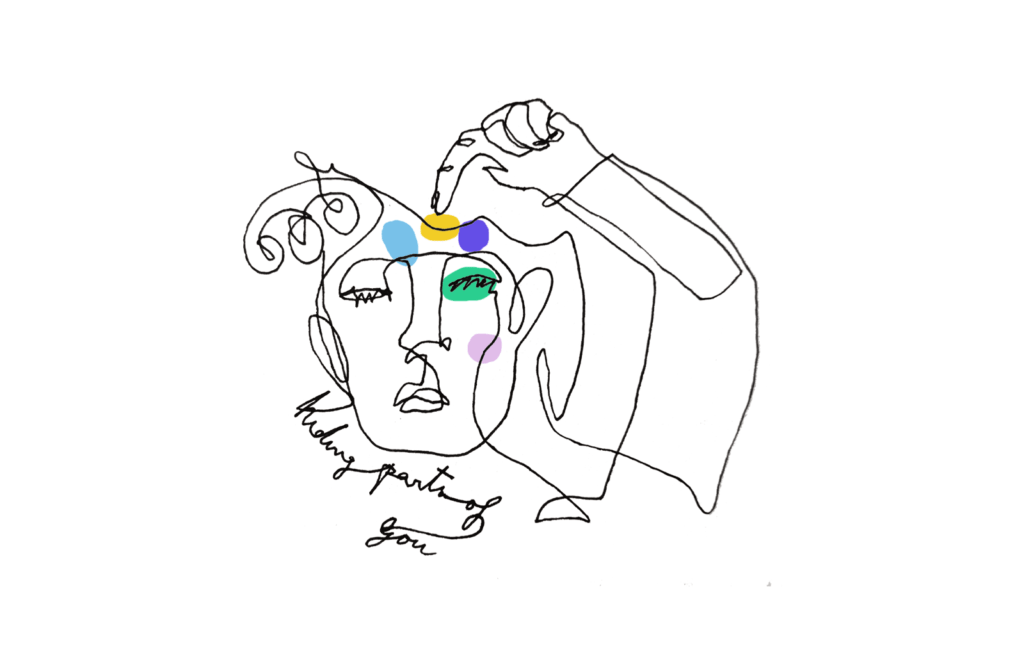- My Favorite Books on Relationships
- The Art of Loving
- Conscious Loving
- You Are the One You’ve Been Waiting For
In a previous post, I described how I have been Exploring Internal Family Systems (IFS), a therapeutic modality that lends itself to self-therapy and is an excellent complement to meditation practice.
Richard Schwartz, the creator of Internal Family Systems (IFS), has written a book about applying the IFS model and techniques to romantic relationships: You Are The One You’ve Been Waiting For (notes). This book is predicated on some basic familiarity with the IFS model. If you haven’t already read my previous post introducing IFS, I recommend doing so before you continue reading this post.

In You Are The One You’ve Been Waiting For, Schwartz describes how the default pattern for romantic relationships that we have received in contemporary society is unrealistic and doomed to fail, because it makes our partner into a savior that can solve our problems and always give us the love we long for. Unfortunately, a romantic partner “cannot succeed in making you feel good in a lasting way.”
Schwartz describes three ways that we attempt to address this fundamental problem, when “love stops flowing” in an intimate relationship:
- Trying to force our partner to change
- Trying to change ourselves “into what we think [our partner] wants”
- “Give up on getting the love that we crave from our partner” – seeking a new relationship, numbing ourselves so we can stay in the relationship, or numbing ourselves to our desire for love so that we can live alone.
In describing the typical problems with romantic relationships, Schwartz also borrows researcher John Gottman’s description of “the Four Horsemen of the Apocalypse”: criticism, contempt, defensiveness, and stonewalling.
Schwartz helpfully distinguishes these into “offensive” and “defensive” categories. Criticism and contempt are “offensive weapons—the cannonballs that couples fire at each other’s castles,” while defensiveness and stonewalling “are designed to protect your castle from your partner’s cannonballs.”

Schwartz proposes that IFS-based strategies can resolve the problems with romantic relationships as typically approached in contemporary society. He labels this something he calls Courageous Love.
With Courageous Love, you become your own primary caretaker (as Self, in IFS language). You focus inside yourself; find the parts of yourself that need love, care, and healing; and use Self to love and heal those parts.
When we are our own primary caretaker, we can accept and welcome the love from our partner as a secondary caretaker: someone who can give you love from their Self to your parts as needed and available.
Furthermore, by doing IFS and Parts Work, you become increasingly capable of interacting “with your partner from your Self, which will not only resolve, or make far less potent, the longstanding issues between you.”
Moreover, we can use the conflicts that arise naturally in relationships to find and heal our exiles, and to strengthen our ability to maintain Self-leadership.
During a conflict, Schwartz prescribes the following approach: “When you begin to fight, each of you can:”
- pause,
- focus inside and find the parts that are triggered,
- ask those parts to relax and let you speak for them,
- tell your partner about what you found inside (speak for your parts), and
- listen to your partner from your open-hearted Self.
This kind of Courageous Love also affords us the opportunity to develop a new relationship with ourselves. We can “demonstrate to [our] parts that they can trust [Self] even in the face of serious threat.” Approaching conflict with the IFS skillset also gives access to our exiles, as well as the possibility of healing those exiles.
And if both partners are committed to Self-leadership and this kind of intimacy, a deep and lasting love becomes possible. Schwartz argues that it is “much easier to stay happily partnered with someone with many personalities than a person you think has just one,” and when both partners have the skills to work with parts and remain in Self.
Conclusion
Schwartz’ claims in this book are radical. He says that love and romantic relationships as typically conceived and practiced in our culture are designed to fail or cause tremendous suffering. Adopting an IFS perspective, he claims, requires “each partner become his or her own exiles’ primary caretaker.”
We cannot find the healing or love we seek in our partner, without first providing that love to ourselves from Self. Paradoxically, though, once we put our Selves first, learning to stay in Self while relating in a healthy way to our parts, without leaning on our partner for the kind of love that only Self can provide, it becomes possible to find a new kind of “Courageous Love.”
You Are The One You’ve Been Waiting For is a must-read for IFS practitioners who are currently in or hope to be in romantic relationships. And if you are already in a relationship but aren’t familiar with IFS or Parts Work, Schwartz makes a strong case that developing skills through IFS or a similar modality is necessary for maintaining a long-term, healthy relationship.
Thank you to Sarah for recommending this book to me.
The art in this post was created by Sílvia Bastos, and is licensed under a CC BY-NC-SA 4.0 license. You can support her work on Patreon.
